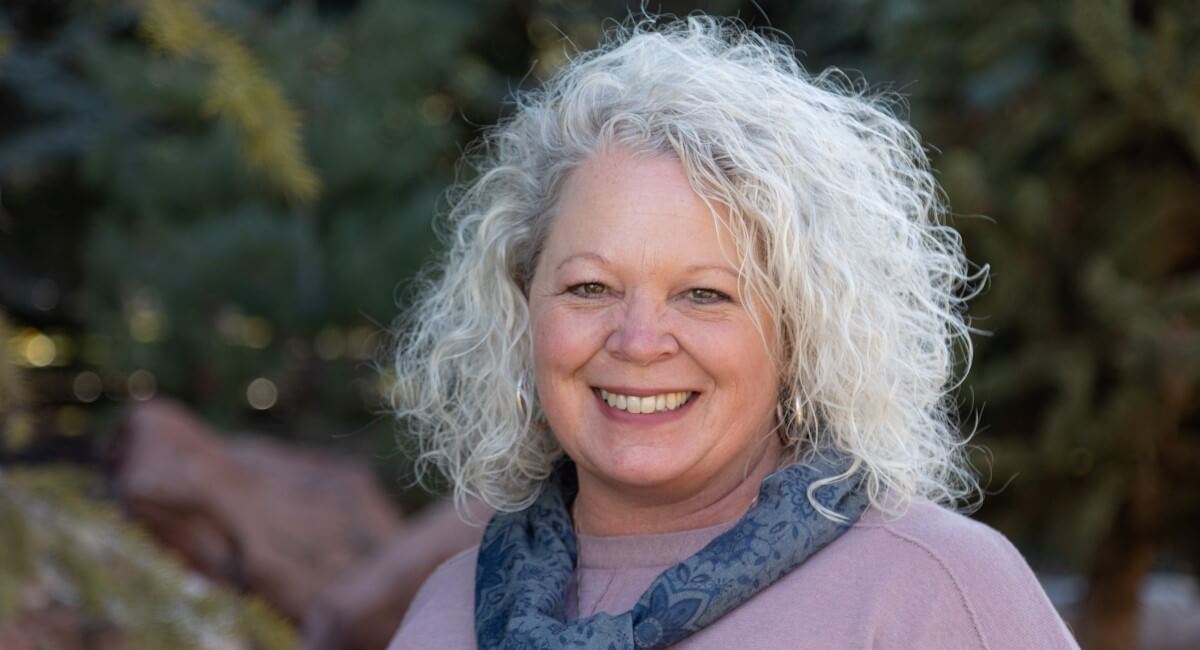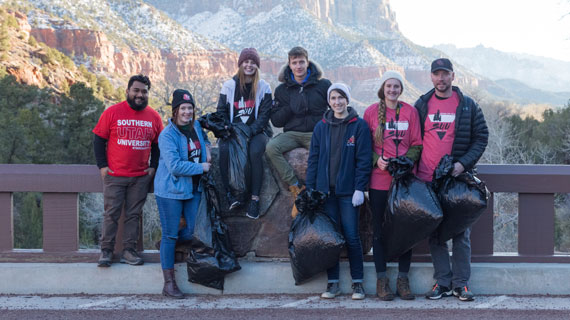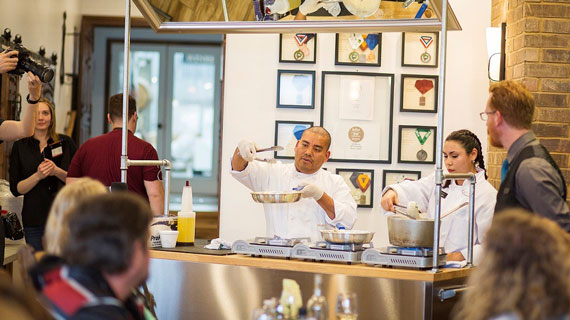Empowering Communities: A Conversation with Melynda Thorpe on SUU’s Commitment to Diverse Educational Opportunities
Posted: April 19, 2024 | Author: Southern Utah University | Read Time: 7 minutes
 Melynda Thorpe Assistant Vice President of Workforce & Educational Opportunity
Melynda Thorpe Assistant Vice President of Workforce & Educational Opportunity
Introduction
Q: What does your role as Vice President of Workforce & Educational Opportunity entail?
A: Working with bright, talented, caring professionals to be responsive to industry needs and elevate economic prosperity for communities and families by expanding access to SUU learning opportunities. I value the opportunity to extend education to populations we don’t always associate with our T-bird student body. Programs that attract learners from the periphery are Head Start Preschool, high school TRIO programs, industry-engaged career pathways, SUU Leadership Institute, and community education. Our SUU teams are doing some incredible work to create a culture of lifelong engagement with SUU. Working together, are redefining what it means to be a T-bird by expanding the capacity to experience whole-life learning and a broader range of SUU credentials.
Q: What inspired you to pursue a career in creating pathways to help people be lifelong learners?
A: Many in the periphery are just waiting for an invitation and an affordable, manageable entry point to SUU. Engaging these new audiences requires breaking down barriers to higher education like affordability, time commitment, technology gaps, and lack of confidence. By offering short, learning programs that result in alternative credentials (certificates and digital badges), we begin to validate small wins for more learners from more backgrounds. Education has always opened new doors of opportunity for me–this is something I enjoy sharing with others. I love to see a learner’s confidence grow as new opportunities in the workplace and at SUU unfold for them. The success of our learners inspires me every day! My role with workforce and economic development brings industry partners to SUU as co-designers in building short courses that address immediate employer needs. I find this work culling from my prior work experience at other Utah universities, government and corporate entities and I’m grateful to have supportive professional partners in many areas of the state.
Overview of Pathways and Initiatives
Q: Can you share with us some insights into the various initiatives and programs SUU has undertaken under your leadership in the realm of workforce and educational opportunity?
A: 1) Teaching U.S. Judges about Water: We just completed the design of our first professional development course for instructing U.S. judges about water science. With concerns over Western drought and global climate change, judges are experiencing an increasing number of water-related court cases. We are honored that the National Judicial College has selected SUU to be their academic partner on this project that outlines eight more requested courses.
2) Affordable Stackable Pathways: SUU’s industry-engaged stackable pathways begin in the noncredit space (so they are more affordable) and lead learners toward higher-wage employment as well as SUU degrees. If a learner wants to pursue a degree, dean-approved non-credit courses can transfer (or stack) toward degrees for university credit. SUU now offers stackable pathways in the high-demand workforce areas of cybersecurity, behavioral health, nursing, advanced manufacturing, animal services, and tourism/hospitality, with many more in development.
3) SUU Leadership Institute: Our five professional leadership programs aim to model transformational leadership and elevate state and community leaders. SUU’s Utah Rural Leadership Academy (URLA) represents a partnership with the Utah Association of Counties (UAC) and engages county executives and elected officials from 29 counties in a year-long development experience. URLA was recently awarded ongoing funding from the State of Utah to sustain this program into the future. Iron Leaders Academy (ILA) offers a local focus and mentors emerging and established community leaders in the area of transformational leadership. SUU teams are now mentoring Snow College and USU Eastern to build their own local leadership programs. We believe and teach that leadership is lifting those around you.
4) FutureReady Utah: Following the pandemic, SUU led a significant research study to explore emerging issues surfacing in southwest Utah’s workforce. The study uncovered significant concerns and the potential for crippling economic impact if issues were not addressed. A team from SUU along with local economic development leaders traveled to the Economic Development Administration’s (EDA) Denver office and shared the findings. In 2023, the EDA provided a funding opportunity and the FutureReady Utah initiative was born. This $2 million, five-year, 11-county outreach project engages SUU, Utah Tech University, and Snow College as partners to lift southwest Utah’s workforce and economy. Ultimately, the goal is to develop a culture for short-term, skills-based learning and career pathways that can help foster guided economic growth with collaboration being the key to success.
Community Impact and Accessibility
Q: How do these initiatives cater to communities that historically haven’t had easy access to higher education?
A: They aim to make learning accessible by breaking down barriers for those to whom higher education does not come easily. We offer shorter classes (6-8 weeks), more affordable, online, and supportive–providing wraparound support and learner mentoring. We want our learners to experience small wins, earn credentials, gain skills that can be immediately applied at work, and choose SUU as their lifelong learning partner. We are focusing on meeting learners where they are at, and developing pathways that demonstrate flexibility, affordability, and human capital payout.
Q: Can you provide an example of a specific success story or impactful outcome resulting from these programs within underrepresented communities?
A: I recently visited with an adult learner who enrolled in one of our stackable certificate programs while living on the Navajo Nation. Internet was never reliable, though she was able to complete her noncredit courses with help from her SUU support team. She is now working as a high school teacher in northern Utah and credits SUU’s affordable, stackable certificates for lighting a fire in her and for helping her transfer her credits toward an education major and a path to earning an SUU master’s degree. In addition to teaching, she is also serving on a policy committee for the National Education Association. This is just one of many success stories.
Extension of SUU’s Influence
Q: In what ways do you see the pathways extending SUU’s influence beyond campus, particularly in regions or communities where higher education might not traditionally be prioritized?
A: Pathways offer attainable milestones that map a learner’s progress toward exploring a career, qualifying for a higher-paying job, and/or earning a degree. Pathways often engage micro-credentials (short, affordable, non-credit, skills-based, primarily online courses) that aim to break down barriers to higher education and help boost a resume. Skills-first learning helps SUU extend its geographical reach (having now enrolled learners from 49 of the 50 United States) and brings a new audience to SUU with 83% of our micro-credential earners ages 25- 64. We are happy to be working with our region’s Native American communities and exploring opportunities to engage the region’s Spanish-speaking and refugee communities as well.
Q: What partnerships or collaborations that SUU has formed with external organizations help further the reach and impact of the pathways?
A: Partners like the National Judicial College, Best Friends Animal Society, and the International Institute of Municipal Clerks have encouraged SUU to think about designing skills-based courses that appeal to national audiences. Local workforce partners challenge us to be agile, responsive, and collaborative. They want to innovate with us in the non-credit space while creating opportunities for employees to earn credits that can transfer to a degree. SUU is an innovative and collaborative leader among its peers in this area. In November, the University Professional Continuing and Online Education Association (UPCEA) invited SUU to share its industry-engaged pathways model with universities gathering in Portland, Oregon, and to begin mentoring other institutions both within and without the state in this area.
Challenges and Equity
Q: Are there specific challenges or obstacles you’ve encountered in implementing these initiatives, particularly in reaching communities that are traditionally underrepresented in higher education?
A: The need for rural outreach is what inspired our in-person plea to the EDA in Denver. We have been given a five-year opportunity to demonstrate the benefits of rural outreach and providing skills-based learning opportunities to underserved populations through career pathways. We want to help all of the region’s residents gain access to quality jobs and social and economic prosperity.
Future Directions
Q: Looking ahead, what are some future directions or goals you have for expanding and enhancing SUU’s efforts in promoting workforce and educational opportunities for diverse communities?
A: I’d like to continue to expand and evolve industry partnerships, increase engagement with communities who have been underrepresented at SUU, and help expand the culture for career pathways and stackable credits. Pathways has the potential to help grow SUU enrollment in broad and purposeful ways, further expanding those who belong to our T-bird Nation.
Closing
Q: Is there anything else you’d like to share with our audience about workforce and educational opportunities at SUU?
A: Be wise. Keep learning. Boost your resume. Lift your career. Go T-birds!




